Defining overlanding is not an easy task. In this article, I’ll attempt to define overlanding to the best of my ability.
It should be noted that many modern day “overlanders” like to poke fun at anyone attempting to define the term. Everyone seems to have their own take on what overlanding is.
Sadly, some folks can be downright snarky while poking fun at others for their attempts to find a definition. The off-road and overlanding forums out there are replete with comments like, “That’s not overlanding! That’s car camping!” or “Oh, so now you have a roof top tent and you think you’re an overlander? LOL!” And these are some of the “nicer” comments.
I’m sure there are some reading this with a grimace on their faces, salivating at an opportunity to rip my article to shreds. That’s okay. Though, if you fall in this camp, I hope you’ll still give the article a chance. At the end, if you still feel the need to correct me, then lay it on me.
I’m definitely not above correction. The more I learn about this overlanding obsession of mine, the more equipped I am to help others join me in this fascinating journey.
The truth is I’m not only an overlander, but I revel in the opportunity to learn something new. So a bit of research went into this article. If you are truly interested in what I believe overlanding is, then read on. I’d love to have you comment on the article and let me know what you think.
So what is overlanding? Well, like any good definition, if we’re going to do the term justice, if we’re going to do this right, then we have to start at the beginning: the origins of the term.
The Origins of Overlanding
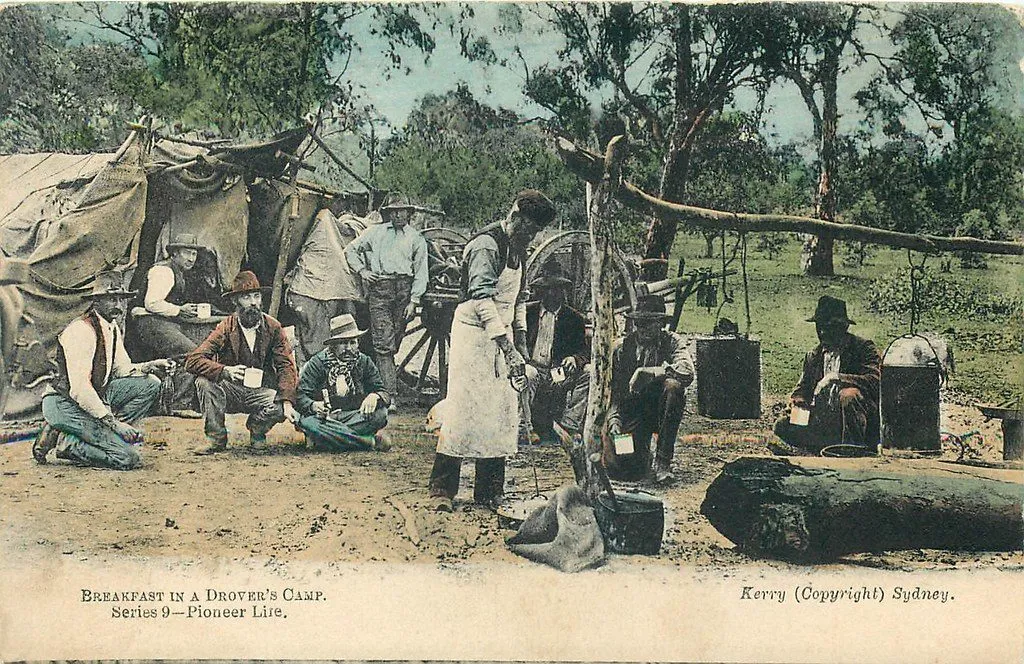
The origin of the term overlanding comes from the Outback in Australia and the droving of livestock across long distances to market.
Droving, for those not familiar with the word, is moving livestock over long distances. Droving was typically done by horseback or on foot, and with the aid of dogs, by walking the livestock “on the hoof.”
The first significant recorded event of this nature was in 1836 when Joseph Hawdon moved 300 cattle from the area of the Murrembidgee River in New South Wales to Melbourne, Australia in 26 days, covering a distance of around 300 miles.
In the early 1900s, “regular” routes for droving began to develop. Consider these among the first commonly recognized overlanding trails.
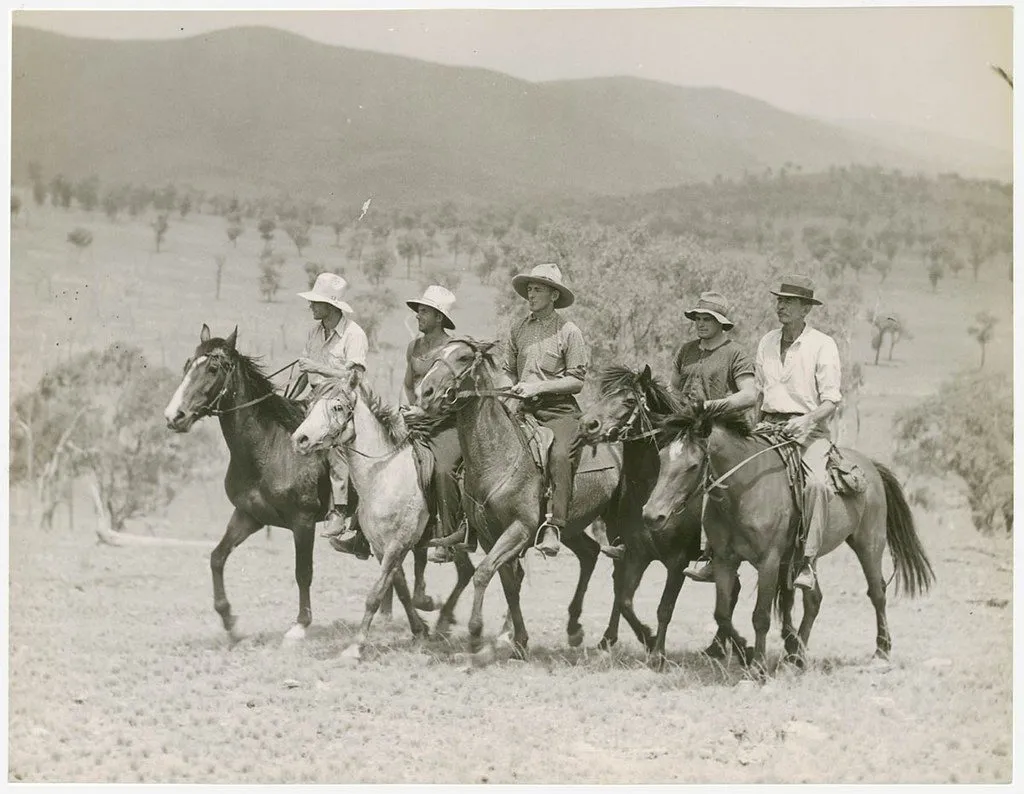
In the 1940s and ’50s, a surveyor named Len Beadell began constructing roads into the Australian Outback and naming these roads:
- The infamous Gunbarrel Highway, a massive 840-mile long route of stone, sand, and washouts through the Northern Territory, South Australia and Western Australia.
- The Connie Sue Highway (named after Beadell’s daughter), which is 400 miles long and found in Western Australia.
- The Anne Beadell Highway (named after Beadell’s wife), which is 823 miles long and passes through remote arid deserts and scrub territory in South and Western Australia.
These roads are still in use today by Australian overlanders.
What we learn from the historical origins of the term overlanding is–at its roots–overlanding has the connotation of traveling over long distances and various terrains on a multiple-day journey, where the traveler is forced to be self-reliant.
Here in the United States, we have our own overlanding pioneers. Lewis and Clark, and all those who traveled west in search of fortune and a future, meet this definition. After all, those trailblazers traveled over long distances and various terrains on a multiple-day journey, and were certainly forced to be self-reliant.
From 1920 to 1950, there were many who began to do this type of travel around the globe via wheeled and motorized vehicles, including bicycles, sailboats, motorcycles, and eventually 4×4 vehicles.
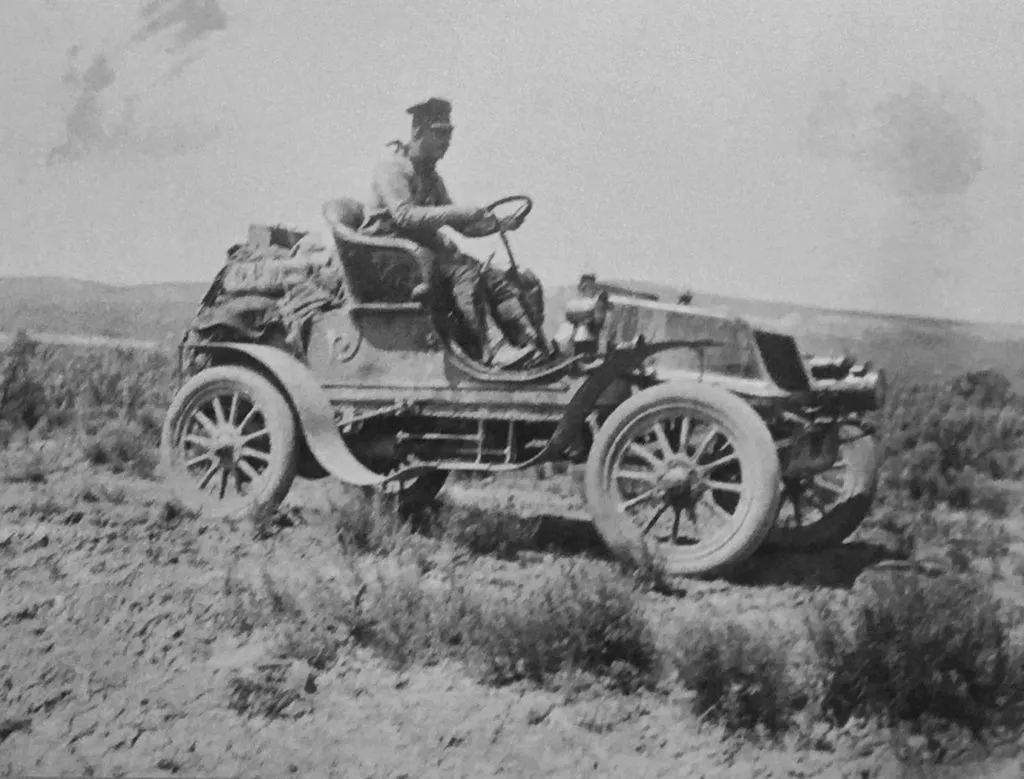
I learned much regarding these pioneers in my research, but I won’t bore those who have no interest in those details. If you’re like me, you’ll probably look them up for yourself by Googling these terms:
- John Weston – Winterton Museum
- Colonel Leblanc – Land Rover Abyssinia
- Barbara Toy – Tangier to Baghdad
- Horatio Jackson Nelson – Alaska to Argentina
All of the above stories are inspiring. These folks literally blazed the modern overlanding path that the rest of us follow today.
So we need a more modern definition of overlanding. It isn’t about work any longer; we aren’t droving cattle. It is about the experience and adventure, and the enjoyment of the journey. It also involves motorized vehicles.
Nowadays, thousands upon thousands of people, including my family, have taken to the modern overlanding movement these people pioneered.
The Definition of Overlanding
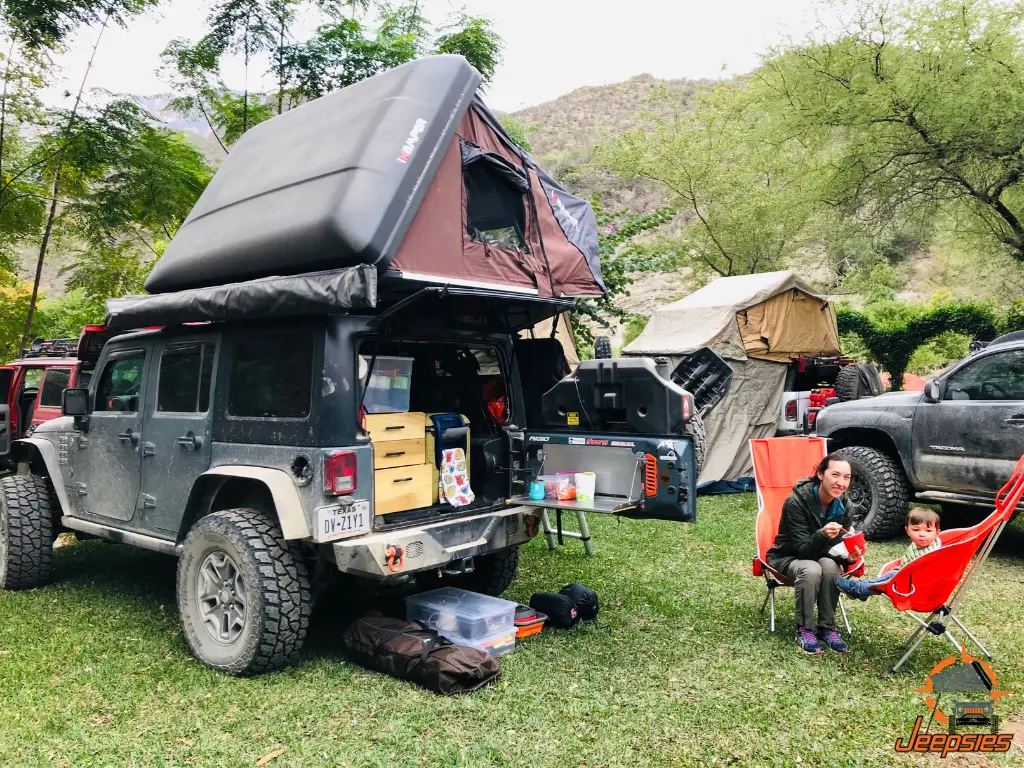
So what then is the true definition of overlanding?
I’m going to give several and this isn’t a cop out. At the end of this article, I’ll define what overlanding means to me.
For now, I hope we can all agree with the following:
Overlanding: Self-reliant travel over an extended period of time, during which the traveler experiences differing terrains.
Modern Day Overlanding: Vehicle-based, self-reliant travel over an extended period of time, during which the traveler experiences differing terrains and the experience, adventure, and enjoyment of the journey itself are the goals of the traveler.
So there you have it. For now, this is how I answer the question, “What is overlanding?” This definition may change over time if I feel there is significant cause for it.
But this is something I’d add to a dictionary. What I hope will be more insightful is how I personally define overlanding, and what it means to me.
What Overlanding Means to Me
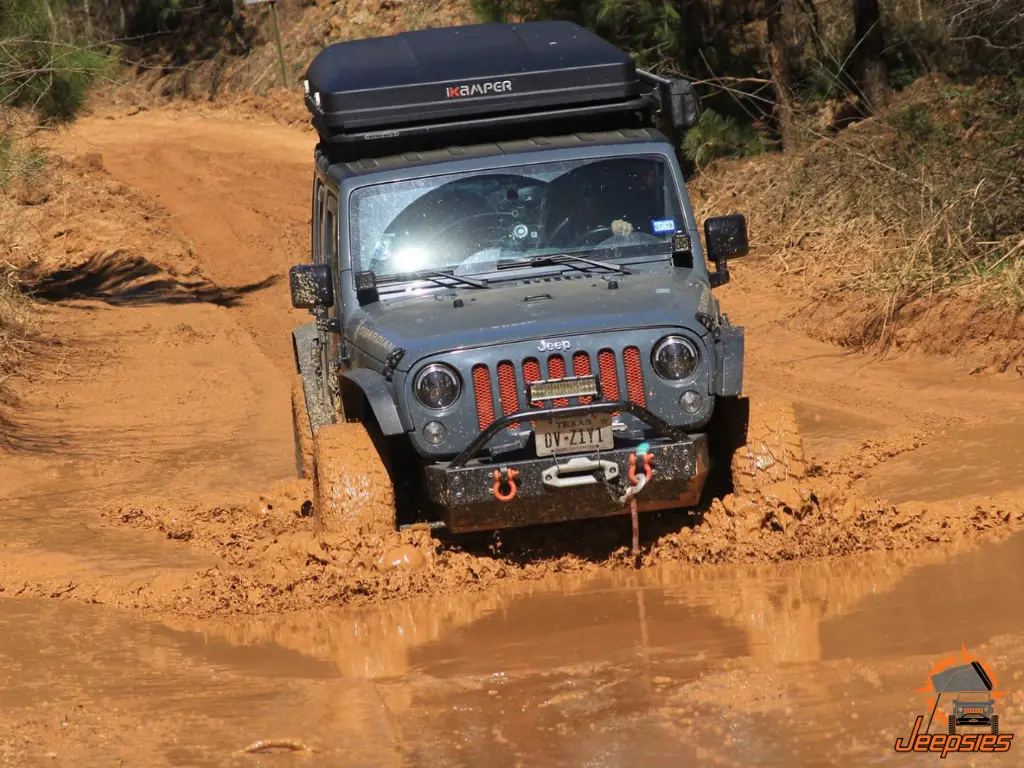
Our journey has brought us here. For those who don’t know, we’re currently on our sixth year of full-time travel, as of this writing in mid-2019.
Some might describe us as “location independent.” I don’t really like that term, but it’s an accurate descriptor of what we’ve been doing for quite some time. We own no real home or property. We love to travel and–more importantly–to make memories and experience the adventure that comes along with this lifestyle.
Our location independent journey began on Feb. 21, 2014. At that point, we called ourselves full-time RVers. That portion of our lives has been faithfully documented on RVWanderlust.com.
Through our RV travel, we’ve done incredible things and met amazing people. But what we really appreciated about the lifestyle were the micro-cultures found within our very own nation. You miss this when you fly from one place to the next. Vehicle travel is slow and intentional.
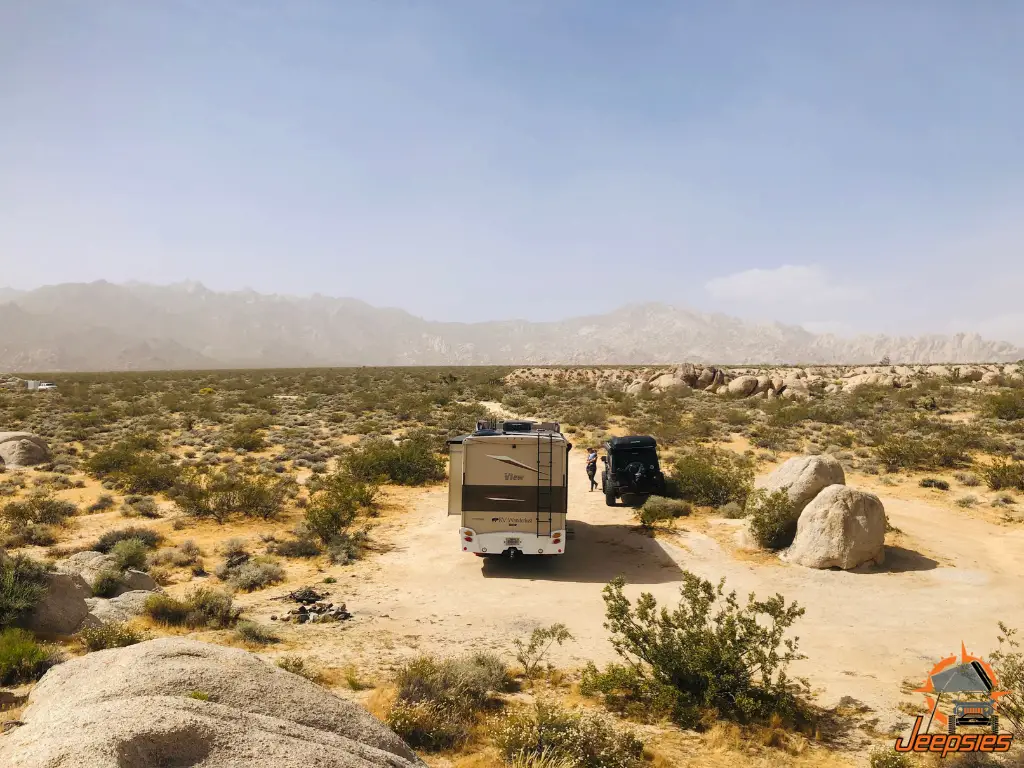
Even though the full-time RV chapter of our journey was extremely satisfying, at some point it became our regular day-to-day. After all, we’d been doing it for five years. It had somehow lost its sparkle.
We craved more.
In June of 2016, we purchased a Jeep Wrangler Rubicon Unlimited. It was a stock Jeep at the time and had never been taken off pavement. The reason we purchased it was to take our adventures to the next level and push the limits of what we could do.
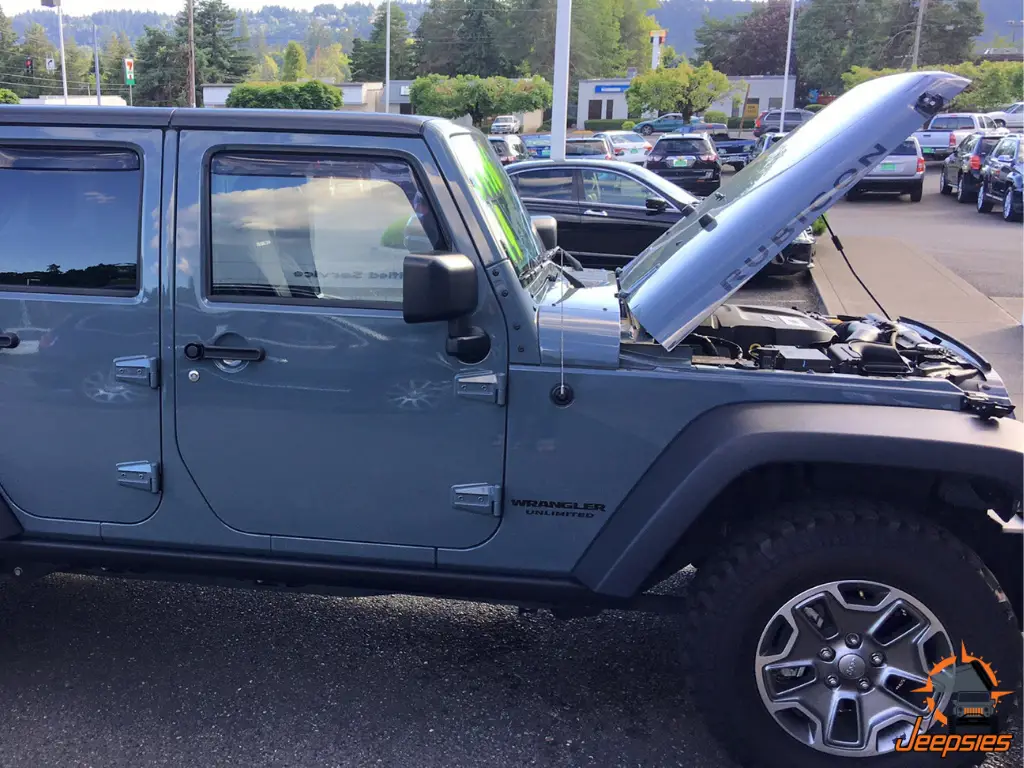
I created this blog, Jeepsies, at the time. Over the next two years, we modified the Jeep extensively for off-roading and took it on some pretty epic trails all over the nation. This started to bring back the sparkle, but there was something still missing.
We still craved more.
May 2018 was life-changing for us. We were in Jackson Hole, WY, just outside Grand Teton National Park. Brittany had been listening to a podcast about a family known online as the Overlanding Family. Unbeknownst to me, it consumed her thoughts.
One day as we were driving into Jackson Hole, Brittany urgently shouted at me to pull over. I thought something was wrong with the Jeep or there was an emergency. No…it was just an overlanding truck for sale in a parking lot. Brittany jumped out of the Jeep, nearly kissed the beastly vehicle, and said, “This is what I want to do!”
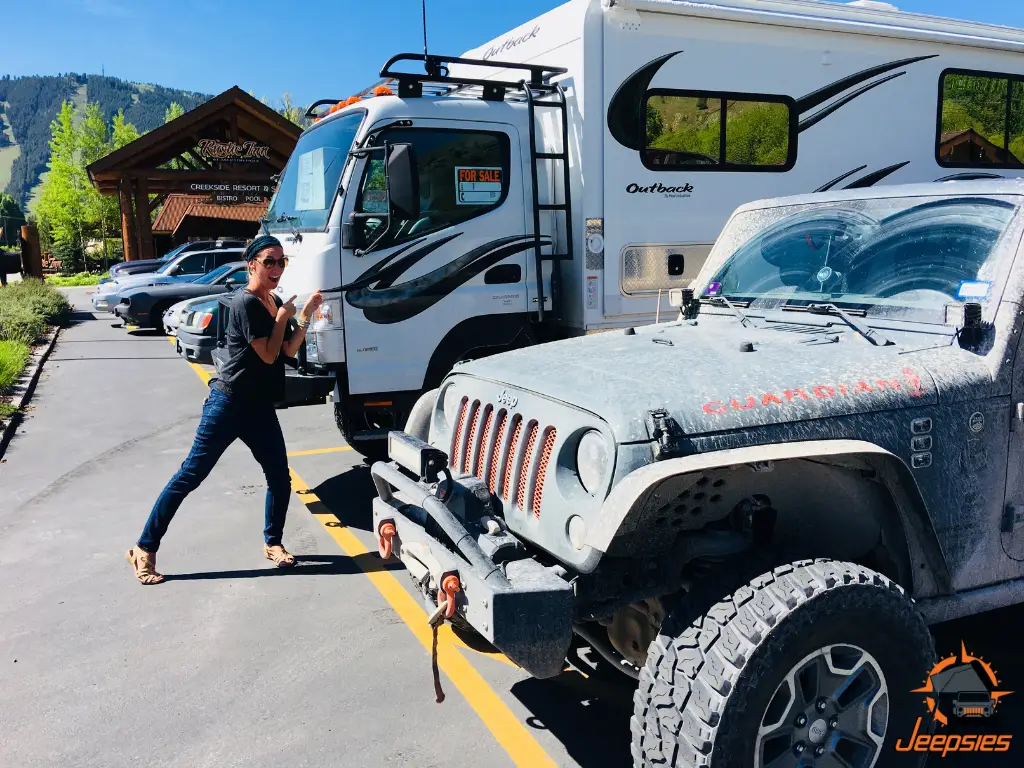
I know my beautiful and introverted wife well enough to know that if she’s going to exclaim something this life-changing, in this fashion, then she’s put some thought into it before telling me. I also knew it was just a matter of time before we’d be traveling around the world.
We began to devour as much as we could about overlanding, pretty much exhausting YouTube in our search for what the lifestyle could look like for us. Full-time travel wasn’t new to us at all. But overlanding was something different.
We began to evolve our Jeep build from a rock-crawling build to an overlanding build, and eventually planned and executed our first international overlanding trip deep into the interior of Mexico. It was epic!
The sparkle was back.
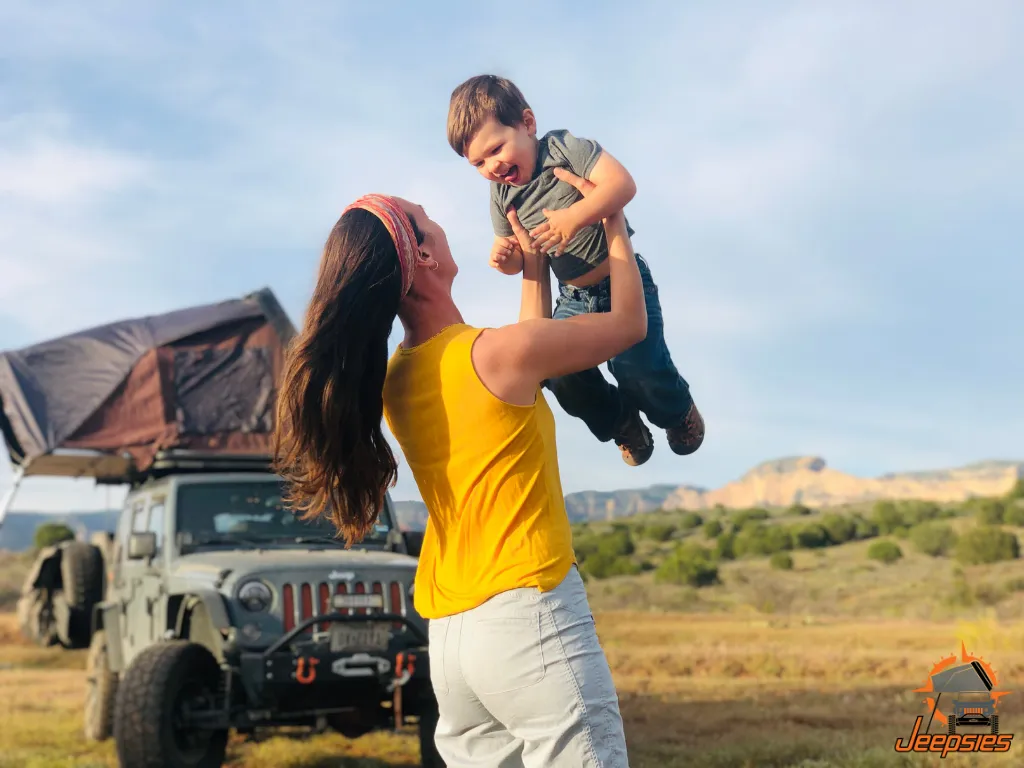
My personal reflections on our journey, from the start of our full-time travel life to now, the amazing people we’ve met along the way, and the experiences we’ve had over the past five years have led me to define overlanding in my own way.
You ready for it? My definition of overlanding: A lifestyle of self-reliant, vehicle-based travel over an extended period of time, during which the traveler experiences differing terrains, micro-cultures, and people groups, and where the journey, experience, adventure, and memories made are the primary focus.
So there it is, folks. I genuinely hope you enjoyed this article and would love to hear your thoughts in the comments below.
Until next time, keep it dirty and wheels side down.
~ Eric, Brittany, and #LittleNomad

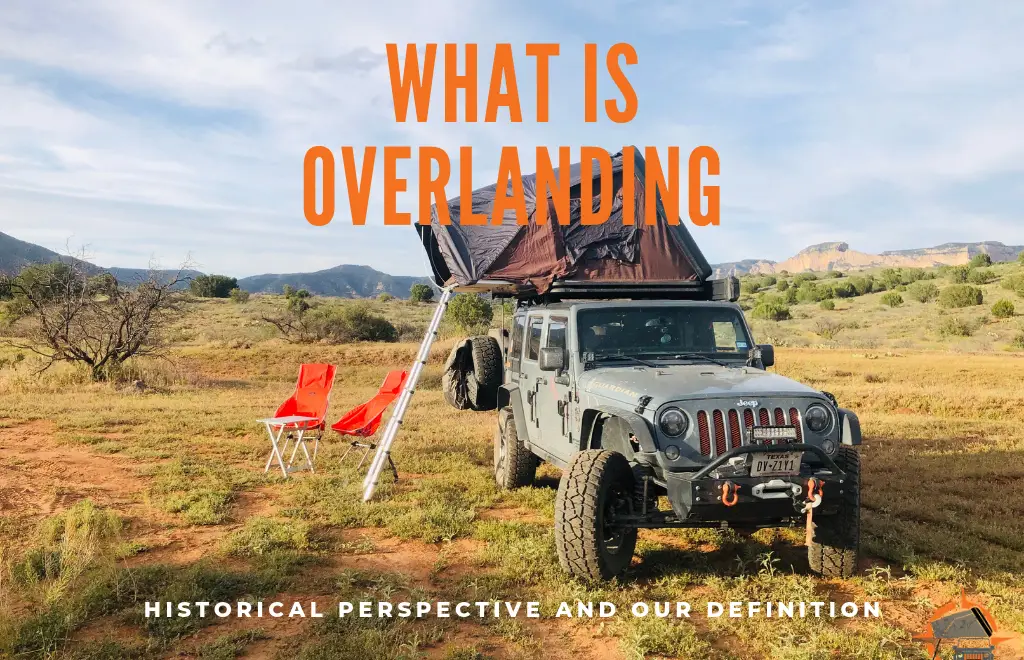


Agreed 100%! I think your research about origins and the general definition is spot on. Not sure why anyone might want to argue with that. But your personal definition is even better because you’re right – it’s the people we meet along the way that make it sparkle.
Safe travels! May your trails be just challenging enough and your tires never go flat.
Jeanette
People like you two! Sorry we didn’t get to spend more time in Flagstaff together, but thankful for the time we did get to spend. Appreciate you taking the time to comment Jeanette. I was bracing for the haters haha. ~ E
Such a amazing story and lifestyle. My wife and I recently just purchased a 2015 keep wrangle unlimited overland, we can’t wait to travel all around Australia with it. Because we want to see everything with our own eyes , because your experience can only be your story !
Thank you guys inspiration and really hope you two may come to Australia one day
This is awesome! Congratulations, Gerard. We will come to Australia! But it will be our last continent, and a number of years from now. Stay in touch, and we’ll connect when we get there!
No haters here Eric & Britt. You two have inspired many for years! When you bought Gladiator I began my fascination with ALL things JEEP and the potential they offer those who think outside of the same-old-same-old :) There isn’t a day that goes by that I am not drooling over a puurrrple, or bright green Renegade that turns in front of me! The new Jeep truck is the hottest truck on the road IMHO. And I used to drive semi OTR, so really like the big boys too ;) Anyway, keep on exploring and sharing your travels because I am a raving fan!
Super sweet Candace. So when are you pulling the trigger on your Jeep? ❤️
You hit it spot on Eric and Britt! So happy that you made the effort to contact the Missoula, MT 4×4 club http://www.montanabackroads.org, and that you will be speaking at RecCon https://www.recconmontana.com/the-event-1 next weekend.
We have been four wheeling, exploring, and camping with Jeeps since 1963! My husband, Willie Worthy, spent many years writing for Four Wheeler, JP, and several other off road magazines, answering tech questions, writing travel stories, and vehicle builds. Here’s a link to one of his articles from Four Wheeler https://www.fourwheeler.com/features/129-1202-february-2012-willies-workbench/ He retired from writing magazine articles not long after this, and we now have a series of three Montana 4×4 exploration books. http://www.montana4x4trails.com
No problem with your not wanting to include the link to our books, definitely understand. Looking forward to meeting you next weekend.
Hi Jeanne and Willie! Thank you for leaving the comment saying we were spot on. I can understand why people are divided on the definition of the term, but I figured we should at least share ours.
We look forward to meeting you both and speaking at RecCon on Saturday. Sounds like you two are quite the adventurers with an amazing history AND future! I’m sure you both have one or two stories to tell around a campfire! ~ Eric, Brittany, and LittleNomad
Good stuff Eric. Appreciate you spending time to share some history, learned a few new things! :) -tf
Thanks TF, I learned a few things myself in this process. It is not an exhaustive article by any means and I’m sure I’ll come back to it later and smile. But for now it’s what I’ve got. The reason I’ve been wrestling with this idea so much, is not because I want to have the “ultimate” definition, it is really because of our 2 year old. He doesn’t really have a choice in the matter and I’m dragging him all over the world. As such it is a profound decision to make for him and his upbringing and I want to make sure I’m doing my own due diligence to give him the best life possible. So I wrestle with this stuff mentally all the time. ~ Eric
At a vanlife gathering we once attended with our pals who’ve lived in their VW Bus and done all of South, Central and North America, over ten or so years, 20-some countries and now onto Europe, but who now have a condo they spend half the year in so they can snowboard, a guy who’d been on the road for a few months replied, “Oh, so you’re not full-time?” His air was condescension and the entire concept would have been laughable if not so downright rude. It seems that people are really into defining what makes them particularly special, and too often do so with the objective of reminding other people why they don’t quite fit into that same special box. If people are giving you trouble or being rude to others, they would seem to be missing what is that key ingredient I like from your definition, seeing other cultures and meeting other people. I believe that is the point of travel (other than seeing all the gorgeous nature), having our minds opened to things we wouldn’t have should we stay in our original corner of the planet. Also, I always just thought overlanding was full-time RVing with much more expensive tires. :)
Nathan, that’s a great story for all of our reader to consider (us too!). Thank you for taking the time to comment. I truly respect your thoughts and insight. Defining overlanding for me was something that I’ve needed to do as I’ve personally been wrestling with the “big picture.” As Brittany and I consider the future we are offering our son Caspian, (since at this point he has little to no say in it) we wrestle with everything from defining terms, to answering the question “what the heck are we doing?” “Is this the best decision?” Even this is part of our process and journey. Also, I really like your definition of overlanding. Haha. It’s pretty darn close. ~ Eric
Renee and I have discussed the concept that our kids were born into this life (the younger two anyway) and didn’t have a say in it, especially compared to our oldest who I tossed into it at 8 and by 15 or so he was over it, and what that all means and how we should do or not do things for our kids. With the younger ones, since living in vehicles and traveling around has just always been their life, and granted they have one another as permanent friends (and often foes), they have never questioned it. The closest they’ve come to wanting to live in a house is getting excited when we get a hotel room so they can jump on the beds. But since our oldest was born into a world of having lots of family nearby and went to school for two years before we started traveling, he always had that taste for such things, and was an only child on the road, so he did miss that life. Not to say he didn’t ever enjoy the life we gave him, but some ever-growing part of him did want to settle down. It was just that none of the rest of us did. So there was always some guilt and conflict there, but we just managed it. When I was a kid, i didn’t choose to live in the house i was born into, I wasn’t given the choice when we’d move to a new school district, i went to things like baseball and karate because my mom said so, etc. While most parents care about their childrens’ happiness, don’t most also do what needs to be done for work and such out of necessity? We believed we were crafting the best life for all of our kids, and us as well, and so the lesson “do what is best for your life, strive to achieve the things you want, not just what’s easier” became our outlook. I don’t regret it and neither does he, though now that he’s 17 we did give in and opt to give him at least those last two years of high school since he was so patient with us toting him across the world. I’m not saying that’s what’s right for you guys and Caspian or anything, just that I know what it’s like to wonder if we’re doing this right, parenting that is, and if it’s best for the kids or just something we want and if that’s selfish or actually exceptional parenting. I think you guys are doing pretty well. :)
Thanks for your insight Nathan. I truly appreciate your words. As you know this is something we’ve been thinking about. We’ve even discussed staying in one general area for a few years (gasp! I know right?) if needed when the time comes. Obviously the lifestyle is something we love. But we love our son even more. Good news is that we have at least 12 more years in us before I’d consider remaining in one area. At that time Caspian would be 14. We’ll see how it goes! A lot could change between now and then anyway. Thanks for the comment Nathan, appreciate your wisdom, experience, and friendship. ~ Eric